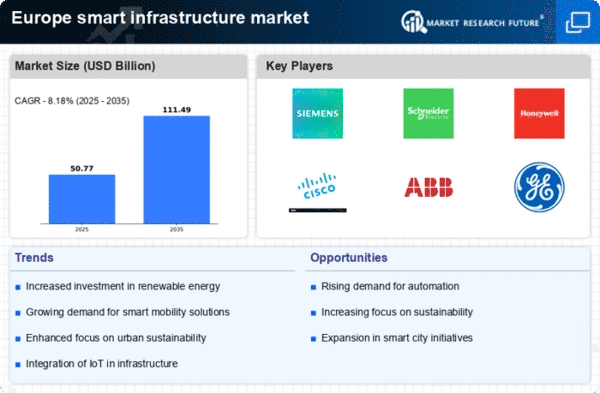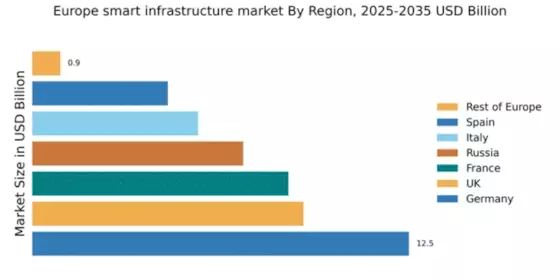Germany : Germany's Robust Market Dynamics
Key markets include cities like Berlin, Munich, and Frankfurt, which are hubs for technological advancements. The competitive landscape features major players such as Siemens and ABB, who are leading the charge in smart infrastructure solutions. Local dynamics are characterized by a collaborative environment between government and private sectors, fostering innovation. Industries such as manufacturing, transportation, and energy are increasingly adopting smart technologies to enhance efficiency and sustainability.
UK : UK's Innovative Market Landscape
Key markets include London, Manchester, and Birmingham, which are at the forefront of smart technology adoption. The competitive landscape features players like Cisco Systems and Honeywell, who are actively involved in smart city projects. The local business environment is dynamic, with a strong emphasis on public-private partnerships. Sectors such as transportation, healthcare, and energy are leveraging smart infrastructure to improve service delivery and operational efficiency.
France : France's Strategic Market Position
Key markets include Paris, Lyon, and Marseille, which are leading the way in smart technology adoption. Major players like Schneider Electric and IBM are prominent in the competitive landscape, driving innovation in smart infrastructure solutions. The local market dynamics are characterized by a collaborative approach between government and private sectors, fostering innovation. Industries such as transportation, energy, and construction are increasingly adopting smart technologies to enhance efficiency and sustainability.
Russia : Russia's Diverse Market Opportunities
Key markets include Moscow, St. Petersburg, and Kazan, which are central to smart technology initiatives. The competitive landscape features players like Honeywell and Cisco Systems, who are actively involved in smart city projects. The local business environment is evolving, with increasing collaboration between government and private sectors. Sectors such as energy, transportation, and telecommunications are leveraging smart infrastructure to improve service delivery and operational efficiency.
Italy : Italy's Growing Market Potential
Key markets include Milan, Rome, and Turin, which are leading the way in smart technology adoption. Major players like Siemens and ABB are prominent in the competitive landscape, driving innovation in smart infrastructure solutions. The local market dynamics are characterized by a collaborative approach between government and private sectors, fostering innovation. Industries such as transportation, energy, and construction are increasingly adopting smart technologies to enhance efficiency and sustainability.
Spain : Spain's Evolving Market Trends
Key markets include Madrid, Barcelona, and Valencia, which are at the forefront of smart technology adoption. The competitive landscape features players like Schneider Electric and Cisco Systems, who are actively involved in smart city projects. The local business environment is dynamic, with a strong emphasis on public-private partnerships. Sectors such as transportation, energy, and telecommunications are leveraging smart infrastructure to improve service delivery and operational efficiency.
Rest of Europe : Diverse Opportunities Across Europe
Key markets include cities in Eastern Europe and the Nordic countries, which are beginning to adopt smart technologies. The competitive landscape features various local and international players, including ABB and Honeywell, who are exploring opportunities in these regions. The local market dynamics are characterized by a growing interest in public-private partnerships. Sectors such as energy, transportation, and telecommunications are increasingly adopting smart technologies to enhance efficiency and sustainability.


















